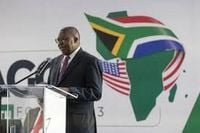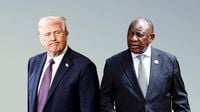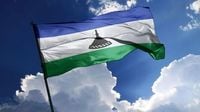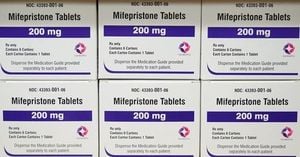South Africa is taking a cautious approach in response to the 31% tariff imposed by U.S. President Donald Trump on imports from the country, opting for negotiation over retaliation. Senior government officials announced on April 4, 2025, that the nation will seek exemptions and quota agreements instead of immediate countermeasures.
The tariff, which Trump announced on April 2, adds to the existing 25% duties on all vehicles and auto parts imported into the United States. This move has raised alarms in South Africa, which exports over $2 billion worth of vehicles and auto parts annually to the U.S., making it the second-largest bilateral trading partner for South Africa after China.
Commerce Minister Parks Tau emphasized that retaliating without fully understanding the U.S. rationale behind the 31% tariff would be counterproductive. He noted that South Africa's average tariff on imports is only 7.6%, highlighting the disparity in trade practices.
Meanwhile, the tariffs threaten the benefits provided under the African Growth and Opportunity Act (AGOA), which grants eligible African nations duty-free access to the U.S. market. The AGOA initiative is set to expire in September 2025, and the recent tariff actions suggest that a renewal of this trade agreement is increasingly unlikely.
Foreign Minister Ronald Lamola echoed these concerns, stating that Trump's tariffs effectively nullify the advantages that African countries have enjoyed under AGOA. As a result, the South African government is urged to expedite efforts to diversify its export markets, with potential opportunities identified in Asia and the Middle East.
In light of these developments, South African officials are committed to supporting industries most affected by the tariffs, including the automotive sector, agriculture, processed foods, and metals. The National Treasury has estimated that losing AGOA status could reduce South Africa's economic growth by less than 0.1 percentage point, while the central bank has modeled scenarios predicting impacts ranging from less than 0.1% to 0.7% depending on the severity of trade barriers.
In a related development, Lesotho, a small landlocked country entirely surrounded by South Africa, has announced an urgent dispatch of a government delegation to the United States to advocate against a staggering 50% customs duty imposed by Trump. This is the highest rate announced for a single nation, significantly impacting Lesotho's economy.
Lesotho's Minister of Commerce, Mokhethi Shelile, expressed grave concerns about the potential for immediate factory closures and job losses due to these tariffs. Other African nations have also faced reciprocal tariffs above the new 10% floor set by Washington, with Madagascar facing a 47% tariff, Mauritius at 40%, Botswana at 37%, and Equatorial Guinea and South Africa both at 30%.
As the global trade landscape continues to shift, South Africa and its neighbors find themselves navigating a complex web of tariffs and trade agreements. The urgency of the situation is prompting discussions about strengthening ties with alternative markets and ensuring the sustainability of their economies amidst escalating trade tensions.






